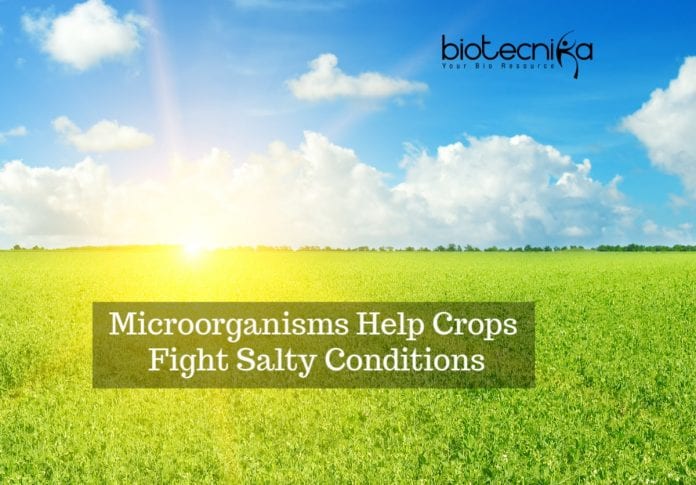Microorganisms Fight Crop Salt-Conditions
Scientists from the Florida International University have found coating seeds with fungus and bacterium could help valuable crops block the saltier groundwater & soil.
The salt-sensitive snap bean that contributes more than 105 million dollars to Florida’s economy every year is particularly at high risk due to extreme salty conditions. The Snap bean is grown in Miami-Dade and Palm Beach counties, coastal communities where rising seas and saltwater intrusion threaten underground aquifers used for irrigation and drinking water.
Microorganisms Fight Crop Salt-Conditions- How Does It Work?
Coating the seeds of snap bean with the rhizobium or the arbuscular mycorrhizal fungi helped snap beans fight wilting & nutritional issues associated with saltier conditions that can lower crop yield.
Professor Krish Jayachandran, the co-director of Florid International University’s Agroecology program & Director of the study, said that coating the seeds with both the bacteria and the fungus worked more like a vaccine to inoculate the plant from salt. The research carried out by FIU researchers was funded by the U.S. Department of Agriculture – Hispanic Serving Institutions START-NOW Grant.
The bacterium-fungus combination introduced by the scientists was also found to increase the production of a protein released by
the arbuscular mycorrhizal fungi that helps soil clump together to keep from being blown or washed away.Microorganisms Fight Crop Salt-Conditions- What’s Next?
Further research is needed to find how other Florida crops might benefit from the inoculation afforded by the bacteria and fungal concoction. This research work was published in the academic journal Agronomy.
Prior FIU studies have shown saltwater intrusion in the Florida Everglades can cause stress plants & trees. Bald cypress could experience nutrient stress where they absorb food too quickly or too slowly. Sawgrass might grow larger while their roots wither and die.



























